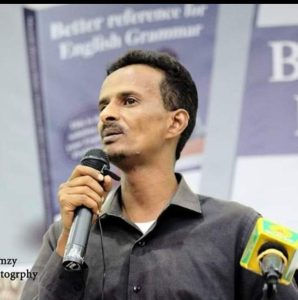Introduction
Somaliland’s quest for international recognition, which began with its unilateral declaration of independence from Somalia in 1991, remains a contentious issue on the global stage. Despite its democratic governance, stable institutions, and contribution to regional security, Somaliland has yet to receive official recognition from the international community. This ongoing debate has been extensively discussed in forums like the UK House of Lords, where members have explored the geopolitical implications of Somaliland’s recognition, its impact on regional stability, and the UK’s potential role in supporting or opposing this movement. However, a complex geopolitical landscape, marked by unresolved territorial disputes with Somalia and shifting alliances in the Horn of Africa, continues to hinder progress.
In this article, we analyze the key arguments presented by members of the UK House of Lords, including Lord Alton of Liverpool, Baroness Hoey, Lord Hannay of Chiswick, and others, and explore the broader international context surrounding Somaliland’s bid for recognition.
𝐒𝐨𝐦𝐚𝐥𝐢𝐥𝐚𝐧𝐝’𝐬 𝐃𝐢𝐩𝐥𝐨𝐦𝐚𝐭𝐢𝐜 𝐄𝐟𝐟𝐨𝐫𝐭𝐬 𝐚𝐧𝐝 𝐂𝐡𝐚𝐥𝐥𝐞𝐧𝐠𝐞𝐬
__________________________
Since 1991, Somaliland has made considerable efforts to gain recognition from the international community, emphasizing its functional democracy, respect for human rights, and stable governance in a region plagued by instability. Despite these efforts, Somaliland’s aspirations have been hampered by Somalia’s firm opposition to its independence and the reluctance of key international players to endorse secessionist movements, especially given the African Union’s stance on maintaining existing national borders.
𝐁𝐚𝐫𝐨𝐧𝐞𝐬𝐬 𝐇𝐨𝐞𝐲, a vocal advocate for Somaliland’s recognition, has frequently highlighted Somaliland’s democratic achievements. During recent debates, she emphasized that Somaliland has conducted six democratic elections, operates under the rule of law, promotes religious tolerance, and remains a haven of peace in the volatile Horn of Africa. She questioned why the UK continues to withhold recognition from Somaliland, particularly given the country’s alignment with British values and its importance as a potential ally in a strategically significant region.
𝐋𝐨𝐫𝐝 𝐀𝐥𝐭𝐨𝐧 𝐨𝐟 𝐋𝐢𝐯𝐞𝐫𝐩𝐨𝐨𝐥, another strong supporter of Somaliland’s cause, echoed Baroness Hoey’s sentiments, arguing that Somaliland’s democratic governance should be supported, particularly in contrast to other African regimes that receive international aid despite questionable governance records. He further suggested that recognizing Somaliland would align with the UK’s foreign policy objectives by securing a democratic ally in a region where other powers, such as China, are increasing their influence.
The UK’s Position on Somaliland’s Recognition
Despite strong advocacy from figures like Baroness Hoey and Lord Alton, the UK government has maintained a cautious stance on Somaliland’s recognition. The government’s official position, as outlined by Baroness Penn in the House of Lords, is that Somaliland’s status must be resolved through a consultative process involving both Somalia and Somaliland. She reiterated that the UK does not recognize Somaliland’s unilateral declaration of independence and emphasized the importance of regional stability, urging caution before any significant policy changes are made.
𝐁𝐚𝐫𝐨𝐧𝐞𝐬𝐬 𝐏𝐞𝐧𝐧 acknowledged the UK’s longstanding relationship with Somaliland, highlighting the UK’s diplomatic presence in Hargeisa, the capital of Somaliland, and ongoing support for development, health, and education projects in the region. However, she warned that unilaterally recognizing Somaliland could destabilize the Horn of Africa, where unresolved territorial disputes and competing national interests continue to drive conflict.
𝐋𝐨𝐫𝐝 𝐇𝐚𝐧𝐧𝐚𝐲 𝐨𝐟 𝐂𝐡𝐢𝐬𝐰𝐢𝐜𝐤, while sympathetic to Somaliland’s aspirations, also called for caution. He referenced the African Union’s position on preserving borders and stressed the need for the UK to coordinate its approach with other international partners, particularly those in the African Union. Lord Hannay further pointed to the challenges faced by newly recognized states such as South Sudan, where independence has not led to long-term peace, as a cautionary example for Somaliland.
𝐆𝐞𝐨𝐩𝐨𝐥𝐢𝐭𝐢𝐜𝐚𝐥 𝐃𝐲𝐧𝐚𝐦𝐢𝐜𝐬 𝐢𝐧 𝐭𝐡𝐞 𝐇𝐨𝐫𝐧 𝐨𝐟 𝐀𝐟𝐫𝐢𝐜𝐚
_______________
The Horn of Africa is a region characterized by shifting alliances, economic competition, and security concerns. Somaliland’s strategic location along the Red Sea, with access to the port of Berbera, has made it a focal point for regional and international powers. Ethiopia, a landlocked country, has pursued closer ties with Somaliland in exchange for access to Berbera, reducing its reliance on Djibouti for maritime trade. This partnership has increased Ethiopia’s economic and geopolitical influence in the region and positioned Somaliland as a key player in the Horn of Africa’s economic landscape.
Egypt’s involvement in the region has added another layer of complexity. Concerned about Ethiopia’s construction of the Grand Ethiopian Renaissance Dam (GERD), which Cairo views as a direct threat to its water security, Egypt has sought to strengthen its ties with Somalia as part of its broader strategy to counter Ethiopia’s influence. Egypt’s signing of military and security agreements with Somalia reflects its growing involvement in the region’s geopolitics.
Baroness Penn, responding to Lord Alton’s calls for recognition, acknowledged the complicated nature of the region’s politics. She highlighted that Ethiopia, Somalia, and Egypt are all major players in the Horn of Africa, each with competing interests that the UK must carefully navigate. She argued that recognizing Somaliland without broader international support could further destabilize a region already grappling with issues of insurgency, terrorism, and conflict.
The Role of the African Union and the International Community
The African Union (AU) remains a key player in determining Somaliland’s international status. The AU has consistently prioritized maintaining the territorial integrity of African states, and its opposition to Somaliland’s recognition is based on the fear that endorsing secession could inspire similar movements elsewhere on the continent. This stance has been echoed by international actors such as the UK and the United Nations, which have been hesitant to support Somaliland’s bid for independence.
Lord Black of Brentwood raised concerns during the debates about how Somaliland’s recognition could impact the region’s fragile stability. He questioned whether Somaliland’s independence would truly lead to peace or if it might encourage further fragmentation within Somalia and other African countries. Lord Black noted that the situation in South Sudan, where independence has led to ongoing conflict and instability, serves as a warning against rushing into decisions about statehood without careful consideration of the broader implications.
Lord Collins of Highbury, another contributor to the debate, emphasized the importance of continuing dialogue and diplomatic engagement between all stakeholders in the Horn of Africa. He urged the UK government to work closely with the African Union to ensure that any decisions about Somaliland’s future are made in consultation with both regional actors and the international community.
Conclusion
The debate surrounding Somaliland’s recognition reflects the complex and evolving dynamics of the Horn of Africa. While Somaliland has made significant progress in terms of democratic governance, regional security, and economic development, its path to recognition is fraught with challenges. The UK, like many other countries, remains cautious in its approach, balancing the need to support democracy with concerns about regional stability and the broader geopolitical implications of recognizing a new state.
As the Horn of Africa continues to experience shifting alliances, economic competition, and security threats, Somaliland’s bid for recognition will remain a contentious issue. The perspectives offered by members of the UK House of Lords, including Baroness Hoey, Lord Alton, Baroness Penn, Lord Hannay, Lord Black, and Lord Collins, reflect the diversity of views on how best to address this issue. Moving forward, it is clear that Somaliland’s future will depend on continued dialogue, both within the region and among international stakeholders, as well as a careful consideration of the broader implications for peace, security, and diplomacy in the Horn of Africa.
The international community, particularly the UK and the African Union, will need to carefully balance the desire for democratic governance and stability in Somaliland with the need to prevent further instability in the region. Only through continued diplomacy and engagement can a peaceful and sustainable solution to Somaliland’s status be achieved.

Xigasho:Gulaid Idaan
bandhihe@gmail.com






























